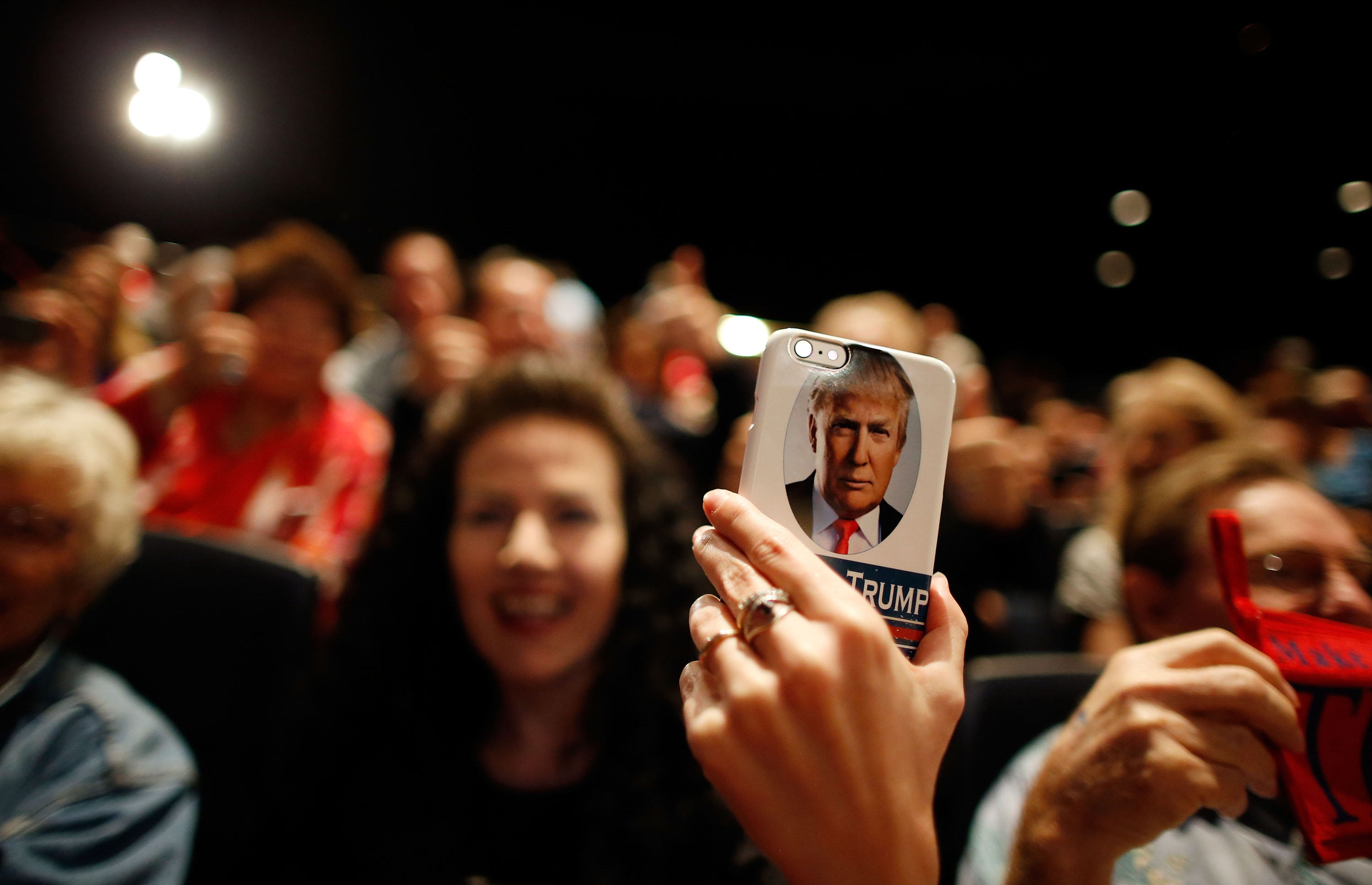Play all audios:
Apple — the world's most valuable public company — would seem to represent everything free-market Republicans and conservatives believe is great and good about American capitalism.
Silicon Valley's quintessential garage startup symbolized booming U.S. technological superiority during the Reagan era. Apple then survived a near-death experience, not thanks to
government bailout or subsidy, but by again creating beautiful, innovative products for consumers. And now, Apple's revolutionary iPhone has helped create a more dynamic economy by
enabling a new generation of startups to disrupt incumbents in staid markets such as hotels and taxis. Given all that, Republicans have been able to forgive the liberal leanings of Apple
executives while holding up the company as an icon of free enterprise. But no such absolution from some GOPers, apparently, for Apple's position on data encryption — in particular its
decision to resist an FBI request to help it crack the password of an iPhone (without losing data) used by one of the San Bernardino shooters. Here's a representative sample from GOP
2016 frontrunner Donald Trump: Trump later called for a boycott of Apple products until the company helped unlock the smartphone. SUBSCRIBE TO THE WEEK Escape your echo chamber. Get the
facts behind the news, plus analysis from multiple perspectives. SUBSCRIBE & SAVE SIGN UP FOR THE WEEK'S FREE NEWSLETTERS From our morning news briefing to a weekly Good News
Newsletter, get the best of The Week delivered directly to your inbox. From our morning news briefing to a weekly Good News Newsletter, get the best of The Week delivered directly to your
inbox. Texas Sen. Ted Cruz, another leading presidential candidate, also called for Apple to provide the FBI with the means to get the iPhone's data. Over on Capitol Hill, Sen. Tom
Cotton (R-Ark.) — one of the party's leading new voices on foreign policy — said, "It's unfortunate that the great company Apple is becoming the company of choice for
terrorists, drug dealers, and sexual predators of all sorts." Pretty rough stuff. What's more, in none of those comments is there even a hint of the complexity underlying the
issue. Coming from the same deep understanding of policy nuance that gave us "Drill, baby, drill!" and "Build the wall!" the GOP is now offering "Open that
phone!" It's an odd demand coming from members of the supposed "small government" party. Here is Washington ignoring private-sector claims that a federal government order
would severely undermine its products and competitive marketplace position. Some pols have even suggested that tech companies might need to change their business models. As my AEI colleague
Matt Mayer recently put it, "Legislators are placing themselves de facto on the boards of directors for privately and publicly traded companies" and directing them to take actions
the companies believe harmful. It all adds up to impulsive policymaking, especially given that such a retrograde, anti-encryption vision risks getting swamped by tech advances — perhaps
developed by privacy-obsessed online communities — that will enable determined smartphone users to install effective encryption. The politics for the GOP are equally as bad as the policy.
This whole episode seems like another setback for the party's efforts to make deeper inroads into Silicon Valley, a Democratic stronghold. Republicans certainly would love better access
to the explosive tech sector's campaign cash and technical expertise. But it's more than that. Silicon Valley is also a cultural force, providing an open, aspirational,
problem-solving vision at a time when so much of politics seems focused on America's perceived brokenness. The GOP is slowly being consumed by Trumpism, a constricted vision of economic
nostalgia that would attempt to restore a long-vanished economic status quo via immigrant deportation and trade protectionism. Trump not only wants to boycott Apple, but also force the
company to completely manufacture its products in America. Republicans think they have a problem now with millennials? Wait till President Trump takes office. Republicans certainly
shouldn't let Silicon Valley or any corporate interest dictate its policy agenda. But the tech and venture capital industries do have worthwhile insights that could inform policy. And
on the encryption issue, Apple boss Tim Cook has a good one: Table the government's order and instead form a government commission of experts to analyze the relevant issues and provide
recommendations that balance private-sector interests, privacy, and national security. Just such a bipartisan idea is already cooking on Capitol Hill. The suggestion provides the GOP a great
opportunity to, for once, think different on tech policy and maybe make a few more friends in Silicon Valley.

